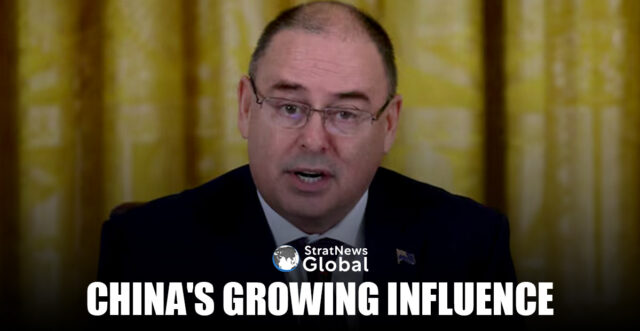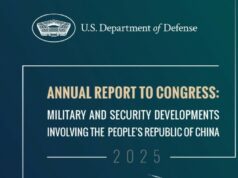The Cook Islands announced on Saturday that it signed a comprehensive strategic partnership deal with China, potentially raising concerns in New Zealand, its constitutional partner.
Cook Islands Prime Minister Mark Brown and Chinese Premier Li Qiang signed the deal in Harbin, the capital of northeast China’s Heilongjiang province, Brown’s office said in a statement.
“This provides opportunities for our government, our private sector and our people to benefit from enhanced partnership opportunities with China in areas aligned with our national interests and long-term development goals,” Brown said.
‘Priority Areas’
The partnership established a framework for engagement on “priority areas” like trade and investment, tourism, ocean science, aquaculture, agriculture, infrastructure climate resilience and disaster preparedness, according to the statement.
Brown said this month he was heading to China seeking the partnership – drawing ire from New Zealand, which is increasingly cautious about China’s growing presence in the Pacific region.
NZ Considering Deal ‘Closely’
The office of New Zealand Foreign Affairs Minister Winston Peters said in a statement on Saturday that “once available, New Zealand will consider the agreements closely, in light of our interests and our mutual constitutional responsibilities”.
The Cook Islands, a self-governing Pacific country halfway between New Zealand and Hawaii, can interact with the international community as an independent state. But New Zealand provides budget support and commits to defending the island nation, whose people are New Zealand citizens.
Cook Islands PM’s China Visit
New Zealand has said its concerns about Brown’s visit to China stem from not having seen the agreements that he plans to sign ahead of the trip, even though it asked to review them.
In China, Brown has held talks with institutions on marine science, climate resilience and economic cooperation, he said in a Facebook post on Thursday.
New Zealand, a U.S. ally, has expressed wariness about Beijing’s growing presence in the South Pacific amid fears it could destabilise Western influence.
(With inputs from Reuters)





